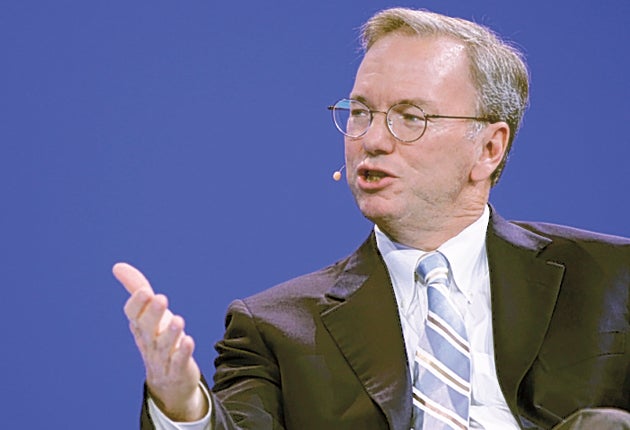It's the biggest name on the web. Now Google bids for TV supremacy

If you want to learn more about Downton Abbey, a Google search might be the place to start. But now the internet giant wants to create its own hit programming, in a $600m move which could threaten the future of traditional broadcasters.
Google built a $200bn business from arranging information in an easily searchable form. But as the dividing lines between what we consume on computers, tablet devices and TVs dissolves, the California company intends to create and control more of the content that its services direct us to watch.
Google plans to turn YouTube, which it bought for $1.65bn, into a TV network offering up to 20 "channels" covering areas such as sport, news and comedy, and featuring programmes made and screened exclusively by the video-hosting site.
The YouTube network would be used to attract users to Google TV, a service expected to launch in the UK and Europe next year, which will allow people to switch between the internet and TV on their home sets, bringing YouTube to every living room.
According to the US website Business Insider, Google will spend up to $600m in original content and is cutting programming deals with the independent studios which would normally make drama and comedy shows for the big US TV networks.
"They are throwing around huge money," an executive who found himself bidding against Google for video content is quoted as saying. "They're fronting production costs to the tune of tens of millions of dollars per deal."
Eric Schmidt, Google's executive chairman, sought to calm fears among British broadcasters, which fear losing viewers to the new service. Google wasn't seeking to compete with traditional channels, Mr Schmidt insisted.
"Actually our intent is the opposite. We seek to support the content industry by providing an open platform for the next generation of TV to evolve, the same way Android (the phone system owned by Google) is an open platform for the next generation of mobile."
However, Google hopes to encourage talented young British film-makers, who might once have expected to work for the BBC or commercial channels. The company is sponsoring the National Film and Television School "to help provide a platform for Britain's emerging film and television programme makers."
ABC, CBS and NBC tried to thwart Google TV by refusing to allow their hit shows on to the service, which is expected to incorporate the popular iPlayer when it launches in Britain. Commercial channels fear that advertisers could migrate to Google if it lures viewersin sufficient numbers.
Insiders believe that Google's ambition is to challenge US cable networks, such as Fox, owned by Rupert Murdoch's News Corporation. Google is already bidding to buy Hulu, a subscription video service owned by Fox, Disney/ABC and NBC Universal, which carries exclusive online rights to a host of leading films and television shows. Motorola Mobility, bought by Google for $12 billion, manufactures the mobile set-top boxes needed to carry the new network.
Join our commenting forum
Join thought-provoking conversations, follow other Independent readers and see their replies
0Comments